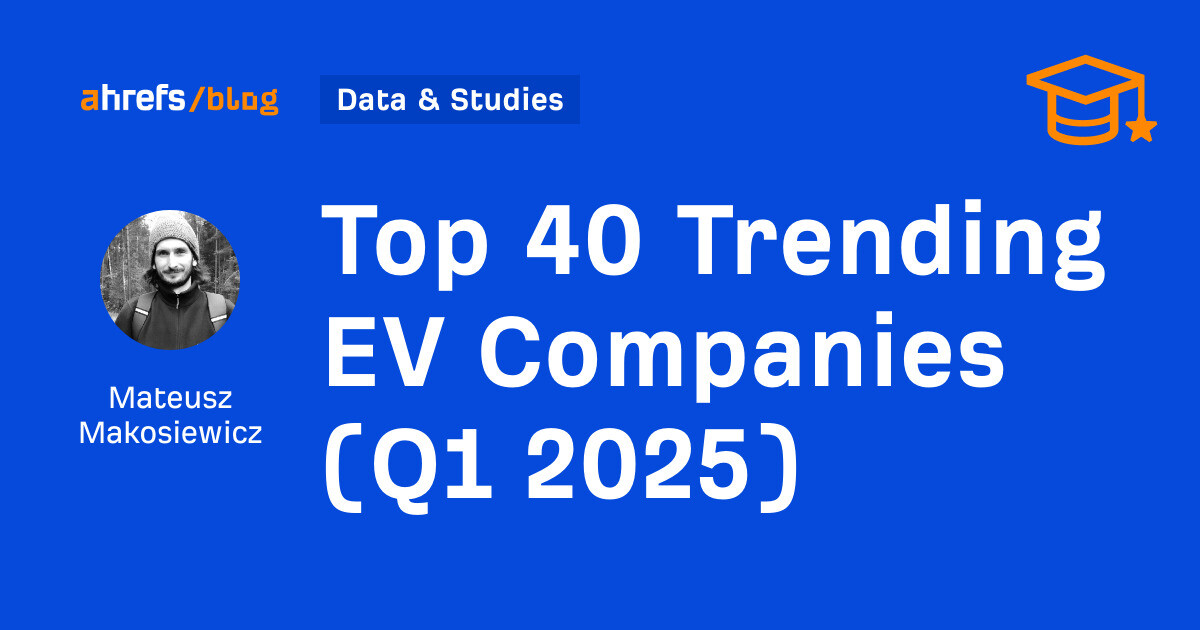SEO Management: The Ultimate Guide (2025)
Are you sure you are managing your website’s SEO the right way? What if it’s quietly falling apart behind the scenes? Let’s be honest. Just having a few keywords on your pages or publishing a couple of blogs doesn’t...

Are you sure you are managing your website’s SEO the right way? What if it’s quietly falling apart behind the scenes?
Let’s be honest. Just having a few keywords on your pages or publishing a couple of blogs doesn’t mean your SEO is under control.
If you are not actively tracking performance, fixing issues, and adapting to what’s changing, you are not really managing SEO.
That’s exactly how websites lose rankings. Don’t let it happen to your website.
Free SEO Audit: Uncover Hidden SEO Opportunities Before Your Competitors Do
Gain early access to a tailored SEO audit that reveals untapped SEO opportunities and gaps in your website.
With how people search undergoing a significant shift and AI search capabilities taking center stage, effective SEO management is especially critical to stay ahead of the competitors and show up at the top of search results.
In this blog, we’ll talk about all that you need to know about SEO management to make sure your website maintains a competitive edge.
What is SEO Management?
SEO management is the ongoing process of planning, executing, and refining strategies that help your website show up higher on search engines like Google.
After all, SEO isn’t something you set up and forget. It’s a continuous, behind-the-scenes effort that evolves as search engine algorithms, your competitors and your audience keep evolving.
That’s what brings SEO management into the limelight.
Whether it’s updating content to match new search intent, fixing technical issues that slow your site down, or building backlinks to boost authority, an effective search engine optimization management strategy ensures that everything works together to bring higher search rankings and stronger online visibility for your business.
Why is SEO Management Important?
The benefits of SEO management for your website include:
Avoid Ranking Drops: Major Google algorithm updates can cause sudden ranking drops, especially for websites that don’t manage SEO properly. Ongoing SEO management helps you stay alert, adapt quickly and prevent your site from becoming outdated or penalized.Boost Organic Traffic: With regular search engine optimization management, including updating keywords, improving content, and running regular audits, your site can keep showing up higher for relevant searches and attract more visitors.Improve User Experience: SEO management helps improve your website’s user experience, from faster load times to a clear site architecture. This means higher rankings and increased user engagement.Increase Brand Visibility: When your site ranks for multiple search terms across your industry, your brand typically shows up everywhere. That kind of brand visibility builds trust and puts your business on top of the mind for your potential prospects..Competitive Edge: When you actively market your site’s SEO, you are most likely to outrank competitors who don’t.Who Manages SEO?
SEO management is handled by people including:
Website Owners: People who run a website or small and medium-sized businesses often manage SEO on their own.In-House Marketing Teams: Dedicated in-house SEO specialists in larger companies often handle SEO management along with other marketing activities.SEO Managers: SEO managers are individual SEO experts who manage SEO execution and performance monitoring for one or more projects.SEO Agencies: For businesses without in-house SEOs, a trusted SEO management agency like Stan Ventures brings proven expertise, advanced tools and the bandwidth to execute strategies faster and more effectively.How to Manage SEO Effectively: 11 SEO Management Strategies to Boost Your Visibility and Rankings
Here’s a look at the proven SEO management strategies for your business.
1. Strategy Development
Every effective SEO campaign starts with a strategy. Without a clear roadmap, you are just publishing content and tweaking pages without any direction.
Why is strategy development important for SEO management?
When it comes to SEO management, you have to create a strategy that aligns with your purpose, such as ranking for specific keywords, fixing crawl issues, or acquiring high-authority backlinks.
Make sure you set realistic timelines to achieve your SEO goals and measure results using key performance indicators (KPIs) like increase in traffic and rankings, reduced bounce rates, improved click-through rates, increased conversions and more.
You can refine your SEO management strategy from time to time based on your SEO performance and overall business growth.
2. Audience Research
Audience research matters for SEO management as much as it does for your initial SEO efforts.
Why is audience research important in SEO management?
SEO isn’t just about driving traffic. It’s about attracting the right audience. This is how you can translate leads into profitable sales opportunities and generate more revenue.
That’s why it’s important to keep up with how user behavior evolves over time.
For example, users now prefer short-form content, search more from mobile devices, or increasingly use voice queries.
This understanding helps you craft your keyword targeting, content and CTAs to match user intent.
Without these insights, you may end up ranking for the wrong keywords or failing to convert your website visitors into customers.
Also, double-check your buyer personas to ensure you don’t miss out on potential audience segments.
3. Competitor Analysis
Your competitors are most likely already ranking for the keywords you are targeting. Why not learn from them?
Why is competitor analysis important in SEO management?
Ongoing competitor analysis allows you to identify content gaps, backlink opportunities and other SEO strategies your rivals are using to rank higher in search.
These actionable insights can help you benchmark your performance, identify SEO gaps at the earliest and tweak your strategy accordingly.
Remember, the goal is not to copy them. It is to outperform them by reverse engineering their winning strategies in a better way.
4. Keyword Research
Keyword research influences every SEO decision you make. It lays the foundation for your content strategy, on-page optimization, and even your backlinks. Without the right SEO keywords to target, you’re basically shooting in the dark.
Why is keyword research important in SEO management?
When it comes to SEO management, ongoing keyword research ensures that your efforts stay aligned with what your target audience is looking for.
With refined keyword targeting, you can discover more profitable keyword opportunities and rank for terms that bring real business, not just traffic.
For instance, instead of vaguely targeting “project management software,” a well-managed SEO campaign might prioritize “affordable project management tools for remote teams.” That’s the difference between showing up in front of casual readers and serious buyers.
Use SEO management platforms like Ahrefs or Semrush to ensure you target the right keywords based on keyword difficulty, search volume, traffic potential, user intent and more.
5. Content Creation and Optimization
As the adage goes, content is King.
Why is content creation important in SEO management?
In terms of SEO management, content creation isn’t just about writing blog posts. It’s about creating the right type of content for the right audience at the right stage of the buyer’s journey.
SEO content creation includes blogs for informational searches, landing pages for high-intent keywords, how-to guides to build topical authority, and even videos or infographics to increase engagement.
Craft every piece of content in such a way that it supports a specific SEO goal, such as ranking, conversions, or link building.
Also, don’t forget to refresh your existing content with updated information and relevant keywords to maintain content freshness and relevance.
That’s how you can leverage content to fuel SEO success for your brand.
6. On-Page SEO
If you are missing out on on-page optimization, you are actually losing your existing SERP positions.
Why is on-page SEO important in SEO management?
If your individual landing pages aren’t optimized, search engines won’t rank them, no matter how strong your overall SEO strategy is.
Here’s what you need to do.
Optimize your meta titles and descriptions to increase click-through rates.Use clear, structured headers to help search engines understand your content hierarchy.Incorporate relevant keywords naturally to signal topic relevance to Google and users.Implement internal linking best practices to guide both users and search engine bots across your site.Managing on-page SEO consistently helps you adapt to evolving search intent, align with algorithm changes, and maximize the visibility of each piece of content you publish.
7. Technical SEO
If search engines can’t crawl, index, or properly understand your site, all your SEO efforts will go in vain.
Why is technical SEO important in SEO management?
Technical SEO isn’t a one-time fix. Regular technical SEO audits ensure that Google bots can crawl, index and rank your website faster.
Use a simple, frictionless website design for better usability.Ensure fast load times and mobile responsiveness for optimal user experience.Implement Google-approved structured data to boost visibility in search results.Create an XML sitemap to guide search engine bots through your site and ensure faster ranking of your important pages.Optimize your images and add image alt text to make your website more SEO-friendly.Efficient technical SEO management can bolster your website’s health and enhance its performance in the long run.
8. Link Building
Backlinks are a long-standing Google ranking factor. They are digital endorsements that vouch for the credibility and trustworthiness of your business online.
Why is link building important in SEO management?
The more high-quality backlinks pointing to your website, more your authority and the chances of your brand ranking higher on Google and other search engines.
You can use white-hat link building strategies like guest posting, niche edits, resource page link building, digital PR and backlink reclamation to strengthen your backlink profile the right way.
Consistent link building can help increase your domain authority and boost your rankings so that you can stay ahead of the competitors and attract more new customers.
9. Monitor Algorithm Updates
Google rolls out updates more often than you think. This can lead to ranking volatility and cause a lot of movements in SERPs.
Why is tracking algorithm updates important in SEO management?
When a new algorithm update rolls out, you may have to tweak your content strategy, refine your backlink profile or rework on your technical SEO to boost your rankings and online visibility.
In such a case, good SEO management is what helps you make the right decisions and come up with the strategy that works right for you.
On top of that, consistent SEO management also ensures that your website doesn’t get hit as hard when algorithms change. While a competitor with poor SEO management might see sudden traffic drops, you’ll already be adapting, staying one step ahead.
10. Monthly Performance Tracking
SEO performance monitoring is equally important as SEO implementation. It ensures your SEO strategy doesn’t become outdated.
Why is performance monitoring important in SEO management?
Performance monitoring is the core of SEO management. Without tracking how your pages perform month after month, you are actually doing guesswork. Most importantly, that hardly does any good for your SEO.
Monitor metrics like:
Organic TrafficKeyword RankingsDomain AuthorityClick-Through RateBounce RatePages Per SessionAverage Session DurationConversion RateUse tools like Google Search Console and Google Analytics to stay on top of these performance metrics. These numbers tell you what’s working and what’s not.
This way, you can double down on SEO tactics that work for you and drive significant SEO results for your business.
11. Reporting
SEO reporting isn’t just another requirement. It’s how you keep the whole strategy accountable and future-proof.
Why is reporting important in SEO management?
You need monthly SEO reports that show you what’s working, what’s not, and what to do next. This includes KPIs like organic traffic growth, keyword movements, top-performing pages, and issues that need attention.
SEO management relies heavily on these reports to take the next step. Without reporting, you may not have streamlined access to your website’s SEO performance. In a landscape ruled by data and algorithms, that’s a risk you don’t want to take.
If you find SEO management and reporting overwhelming, leverage managed SEO services offered by a professional SEO management company like Stan Ventures and get access to comprehensive reports without breaking a sweat.
Alright. We are at the end of this article. On that note, here are a few important last-minute reminders.
Remember, SEO is a continuous process. From keyword research and creating content to tracking results and adapting to algorithm changes, every piece of SEO management plays a significant role in consistently improving your online visibility and helping your business stay competitive in the digital landscape.
If you haven’t audited your website in a while or are not sure if you are doing SEO management the right way, make sure you implement the strategies mentioned above at the earliest.
Looking for professional assistance to manage your website’s SEO? Book a free consultation with our experts to see how our dedicated SEO management services can help.
Ananyaa Venkat is a seasoned content specialist with over eight years of experience creating industry-focused content for diverse brands. At Stan Ventures, she blends SEO insight with strategic storytelling to shape a compelling brand voice. She has contributed to several leading SEO publications and stays attuned to evolving trends to ensure her content remains authoritative, relevant, and high-quality.

 JimMin
JimMin 
































